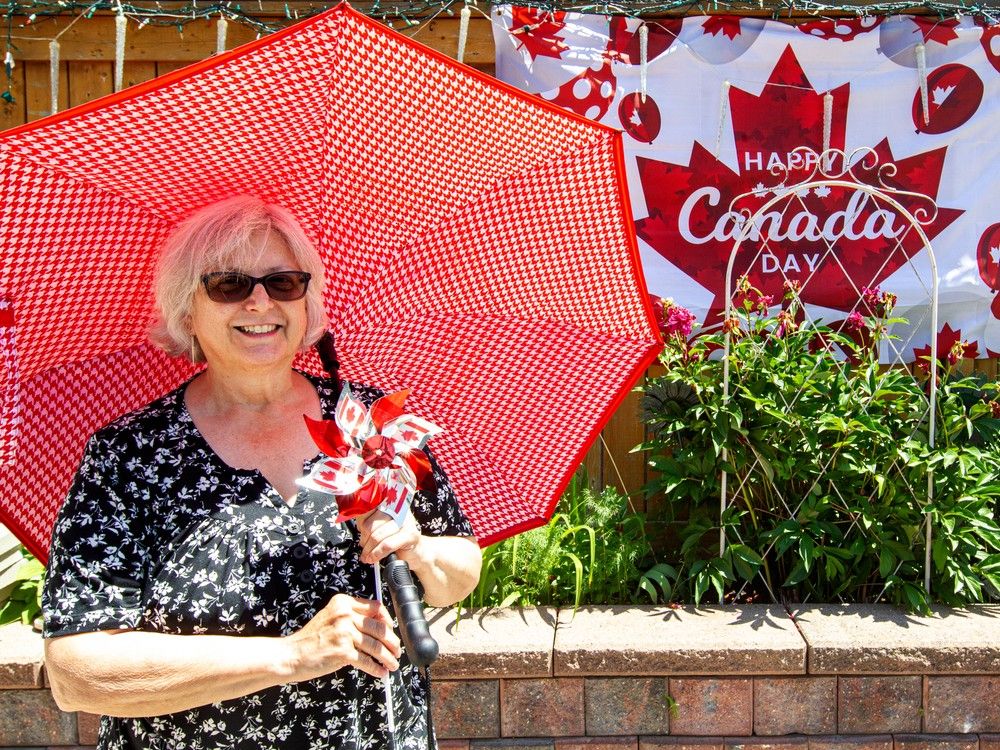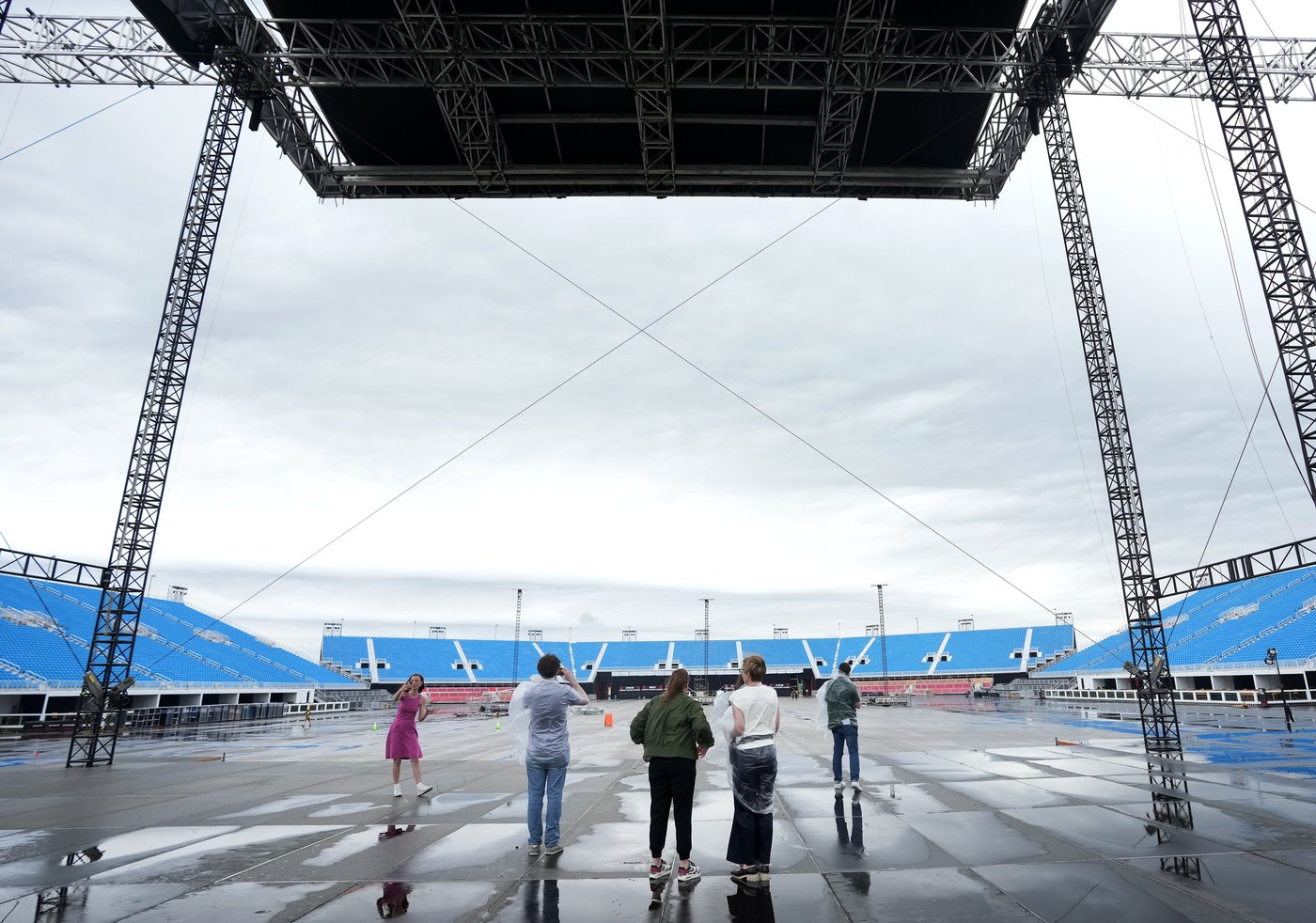What is it to be Canadian? I’ve grappled with that question for half a century or more.
I wasn’t quite seven when I first went to Expo ’67 in Montreal — too young, really, to appreciate all the nation-building that had gone into Canada’s
centennial celebrations
: the libraries and arenas being built; people canoeing or riding horseback across the country; or any of what seemed like 20 million maple leaf-themed projects happening everywhere, all at once.
I sang along to
Bobby Gimby’s Ca-na-da
, a.k.a. The Centennial Song — “One little, two little, three Canadians” — but can’t say it instilled in me a great sense of patriotism. Perhaps I was simply too young to realize that Canada could possibly be anything
BUT
the heady excitement of those days. Canadians, I may well have presumed,
ALWAYS
partied like it was 1967.
Besides, what did I have in common with a francophone student in Quebec City, or an oil worker in Alberta? What history did I share with Southeast Asian refugees who came to Canada in the late 1970s, or the Ojibwe and Swampy Cree people of Treaty 5 whose forebears were here long before any Deachmen left Scotland?
The more I considered Canada’s identity, the more fractured and elusive it seemed: a mess of overlapping, often contradictory jigsaw-puzzle pieces that seldom fit neatly together.
Yet, according to
surveys
done earlier this year by Ottawa-based
Abacus Data
, a strong unifying Canadian identity exists.
Conducted just two weeks apart, in late January and early February, the surveys suggest that threats to our sovereignty from U.S. President Donald Trump led large numbers of Canadians to rally ’round the flag where previously we were lackadaisical. When asked if they believed in a unifying Canadian identity, 69 per cent of the early cohort strongly or somewhat agreed. Two weeks later, as prattle of Canada becoming a 51st state continued, that figure jumped to 79 per cent.
A more recent
Environics poll,
in May, noted a similar spike in Canadian pride, increasing from 53 per cent last September to 62 per cent, the largest jump recorded from one survey to the next since 1985.
In other words, the more Trump talked trash, the more we got our elbows up.
So what are the defining features of Canadianism? The top three in the most recent
Abacus study
were our politeness and kindness, cited by 17 per cent of participants; respect for diversity and inclusion (15 per cent); and unity and community support (10 per cent). None of these shows overwhelming consensus, however.
Ottawa-based Oksana Kishchuk, who conducted the surveys, says,
“There’s a sense that there is a Canadian identity, but folks have a really hard time articulating what it is. I think the Canadian identity is that it isn’t the same for everyone, but we can still rally around it.”
In March, Kishchuk asked Canadians what makes a strong Canada. The top three answers were shared values (37 per cent), a strong economy (36 per cent) and a strong democracy (34 per cent).
Beyond our reputation for being kind and welcoming, though, Kishchuk believes our “shared values” actually vary greatly, depending on age, where people grew up or whether they were born here.
Confusing? Absolutely. Helpful? Only as a starting point. It was time, I felt, to take my search for a national identity on the road (locally), and ask some Ottawans what they thought.
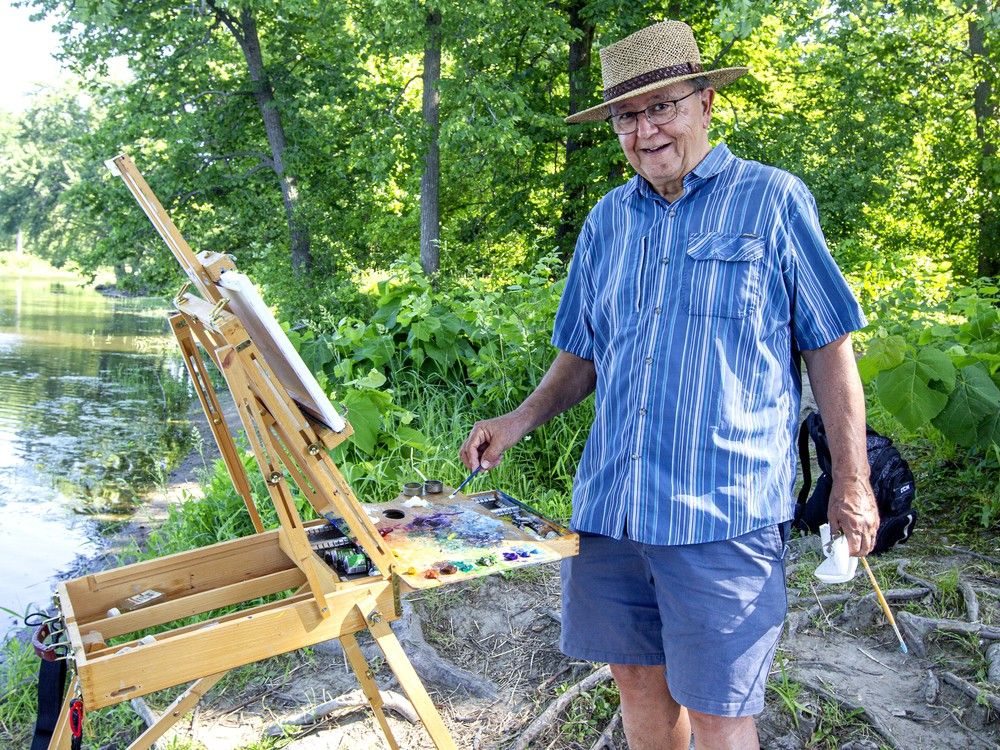
Luis Leigh, a Peruvian expat who’s lived in Canada since 1971, told me our landscape is what’s quintessentially Canadian. It made him take up painting, which is what he was doing when we met at Petrie Island. “We have a beautiful country, with a landscape that’s second to none.”
Others I spoke with similarly cited our affinity with the outdoors — or our love/hate relationship with the weather. “We’re always going to complain about it,” said Keira Conlin, 22, “no matter what it is, but we are always going to rally. We’re going to look forward to that first snowfall, to getting out on the ice. To make the best of it and come together as a community in all of those elements.”
Both Conlin, who was at work at Wesley Clover Parks when we met, and Shayne Baylis, who had just played a game of pickup hockey at Sensplex West, cited sports as nation-building: In Baylis’s case, hockey; in Conlin’s, Olympic and other international competition. It’s perhaps telling that, as the NHL playoffs winnow the field of contenders each year, many Canadians switch their allegiances to whichever Canadian teams remain in the hunt.
Leigh, meanwhile, recalled a Portuguese neighbour who proudly displayed a Canadian flag every Canada Day. “I knew exactly why he was doing it. As an immigrant, you feel Canada is a country that’s open and welcoming.
“And it’s happened to me so many times that I’m traveling in the world somewhere and somebody just asks, ‘Are you Canadian?’ I couldn’t tell you how they know, but there is something that tells you someone’s Canadian. The way they dress, the way they talk. We tend to be much more gentle and polite, and respectful of other people. Those are things that that are common to Canadians.”
McKellar Park resident Helen Souter recalled her son Andrew’s wedding ceremony in China, and the concerns that the Chinese father of the bride had. “Her father said to us, ‘When Jill told us she was going to marry Andrew, we were worried that he was going to be a loud American.’ But they were very happy to see that he was a kind, gentle person.” In other words, a Canadian.
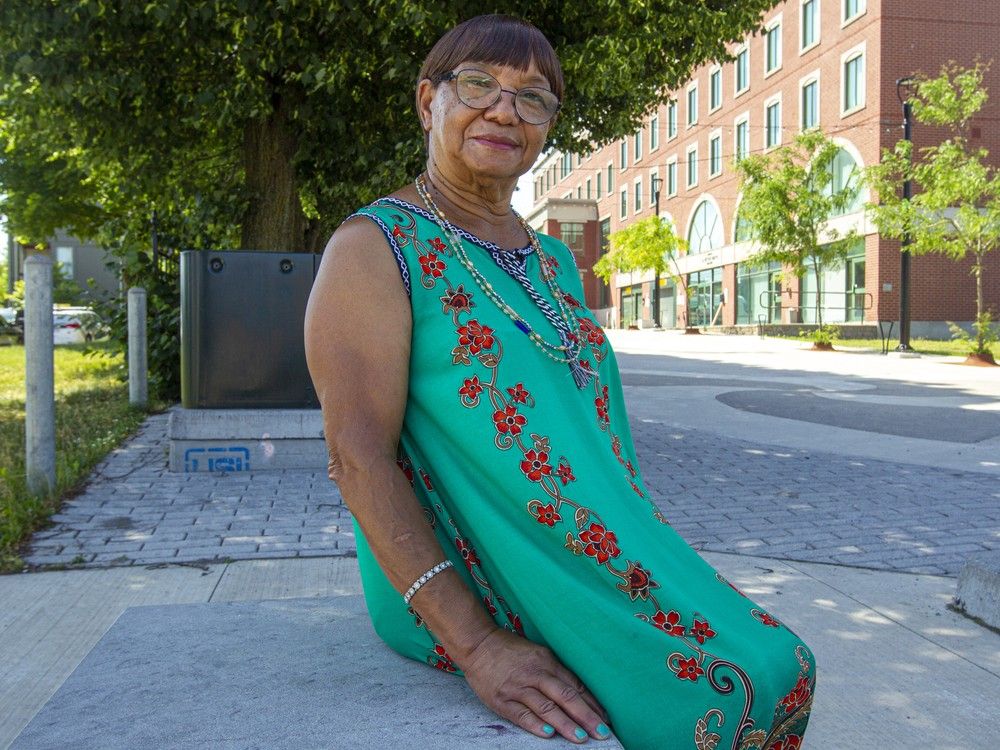
Gloria Russell is another import, having moved to Ottawa from Jamaica 43 years ago. “What makes us different is the heart,” she said when we met on Rideau Street. “The giving heart. The considerate heart that we have for each other. We’re not only for ourselves; we are here for each other.”
Conlin agrees. “It’s the care,” she said. Conlin’s father served in the Canadian Forces, and she’s lived in different parts of Canada and the U.S. “Wherever we’ve gone, there’s been a strong sense of Canada, and of being proud of our nation, of what we’ve done to support and help people, here and in other parts of the world.
“We’re not trying to necessarily be the very best at something or better than others,” she added. “It’s just a consideration for others, and I think that’s where the politeness comes from.”
Baylis, too, noted Canadians’ willingness to help. “People look at us as helpers, rather than the leaders. The leaders often get a bad name because they have to make those hard decisions. We’re able to help out.”
Raymond Samuels, studying at uOttawa’s Morisset library, told me that patriotism is about celebrating our identity as Canadians. “That includes diversity, our history, the struggle — struggles to achieve our point in history today, from even before Confederation, from the War of 1812 to all the efforts made by the veterans of World War Two and World War One.
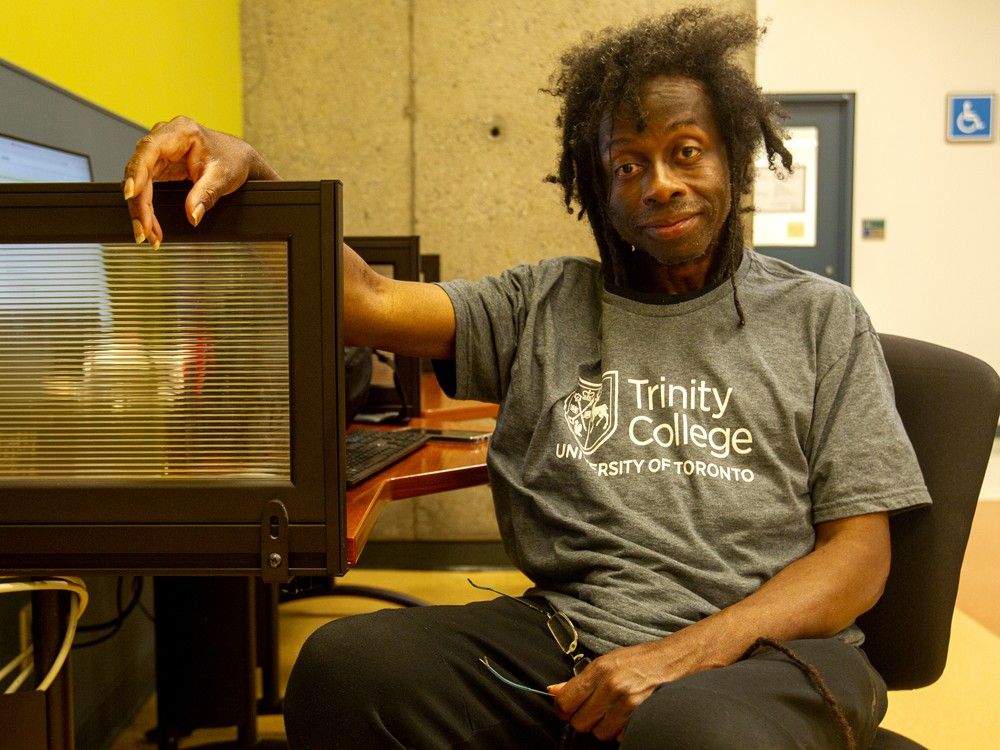
“All those aspects of Canada are like a synergy of coming together to make up who we are at this particular moment in time.”
At this moment, Samuels feels that patriotism in Canada, thanks largely to Trump, is at a level not seen since the centennial celebrations of 1967 or the Avro Arrow project of the late 1950s. “The threat of annexation has really accelerated the process of a development of a national consciousness,” he said.
But can it last beyond Trump? Or might the surge disappear if the threat does? Our identity has often been defined by the fact that we’re not American. Not as loud. Not as strident. Not smug. Is that it, though?
Stephen Azzi, professor of political management at Carleton University, sees some greyness in the distinction. “My sense is that being Canadian means taking all that’s good from the Unites States and leaving behind all that’s bad. So it’s not just a reaction to the United States, because at the same time that there is anti-Americanism in Canadian society, we are also a very American people. A European encountering a Canadian and an American would have a lot of trouble telling the difference between the two.”
Azzi feels that the sense of national pride he’s seen steadily dwindle in Canada over the years — a trend shown in earlier
Environics
and
Angus Reid
polls — has been reinvigorated by Trump. “I hope that it’s not just anti-American bigotry, but that it really awakens a positive sense of Canada.”
This negative space where identity should be obvious is maybe the most Canadian thing of all — a kind of polite absence.
It’s all about the small things
And yet, it does bind us. The glue is in the small things: the instant camaraderie between strangers stuck in a snowstorm, in our reverence for lakes and trees and weather reports. It’s in our reflexive modesty, our affection for underdogs. It’s a quiet kind of nationalism, low-grade and self-deprecating. But not to be dismissed, as our neighbours are discovering.
It’s difficult to overstate how much events in the U.S. have altered the Canadian mirror. Trump’s belligerence toward Canada prompted a flicker of collective defensiveness, and then something resembling pride. Not in the rah-rah, flag-waving sense, but a quiet stiffening of the spine. Perhaps the act of being Canadian requires conscious effort: a decision, each day, to value decency, diversity and consensus over volume, vanity and vitriol.
“We” have never been a single story, and we’ve rarely been unified — witness Western alienation, Quebec’s separatist movement and Indigenous dissatisfaction. Yet, it seems, patriotism in Canada doesn’t require homogeneity or blind allegiance. It can be critical, recognizing our flaws while still believing in the notion of a better, fairer country, and trying to get there. Our strength isn’t in our sameness, but in recognizing that the student in Quebec City, the newcomer from Vietnam and the elder in a northern Cree community are all part of the story.
Perhaps being Canadian isn’t something we are. It’s what we do, over and over again. Politely, maybe. But proudly, too.
Related
- Pellerin: How to be a joyful Canadian — Diane Sims leads the way
- Canada Day 2025: Everything you need to know about how Ottawa is celebrating

